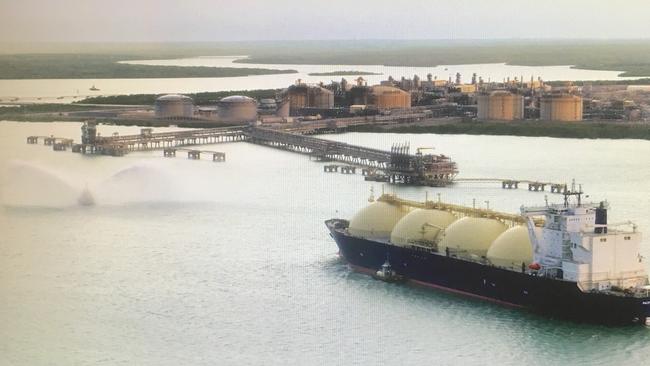Santos calculations ‘do not stack up’
Santos has said its Narrabri coal seam gas development can “compete effectively” in the NSW market.

An economic consultancy has rejected claims made by Santos that its $3.6bn Narrabri project will provide cheaper gas than LNG imports as the Independent Planning Commission weighs whether to recommend the controversial development.
Santos has said its Narrabri coal seam gas development can “compete effectively” in the NSW market even if two rival LNG terminals proceed with gas prices in Sydney up to 12 per cent lower should the development receive the go ahead.
The gas producer touts the development — which could supply half the state’s gas needs — as a solution to the tight east coast market by undercutting LNG imports and offering the cheapest new supply source in the state if it does get the nod from planning tsars.
But Canberra consultancy Pegasus Economics told the IPC’s public hearing into Narrabri the calculations do not stack up with LNG imports into NSW costing $US4.20 ($5.88) a gigajoule according to Platts figures. That compares with a constant gas price of $8.70GJ including transport costs to Sydney in Santos’ 2016 economic analysis of the gas field.
“It is not true in my opinion to say the Narrabri gas project will always be in a position to deliver cheaper gas prices to NSW than LNG import terminals possibly could,” Pegasus Economics director Alistair Davey told the IPC after conducting Narrabri analysis on behalf of lobby group North West Alliance.
“Any concern that Santos has expressed over looming gas shortages is somewhat disingenuous in my opinion and it has used the prospect of looming gas shortages on the east coast of Australia as a fulcrum to garner regulatory approval of the Narrabri gas project.”
Former BHP and ExxonMobil executive, Tim Forcey, also rejected Santos’ claims.
“Coal seam gas full stop is expensive gas. I used to work more in the conventional oil and gas industry and really it was the oil that paid the bills. Gas was really just in some cases a bit of a by-product that got in the way of oil production,” Mr Forcey said.


To join the conversation, please log in. Don't have an account? Register
Join the conversation, you are commenting as Logout